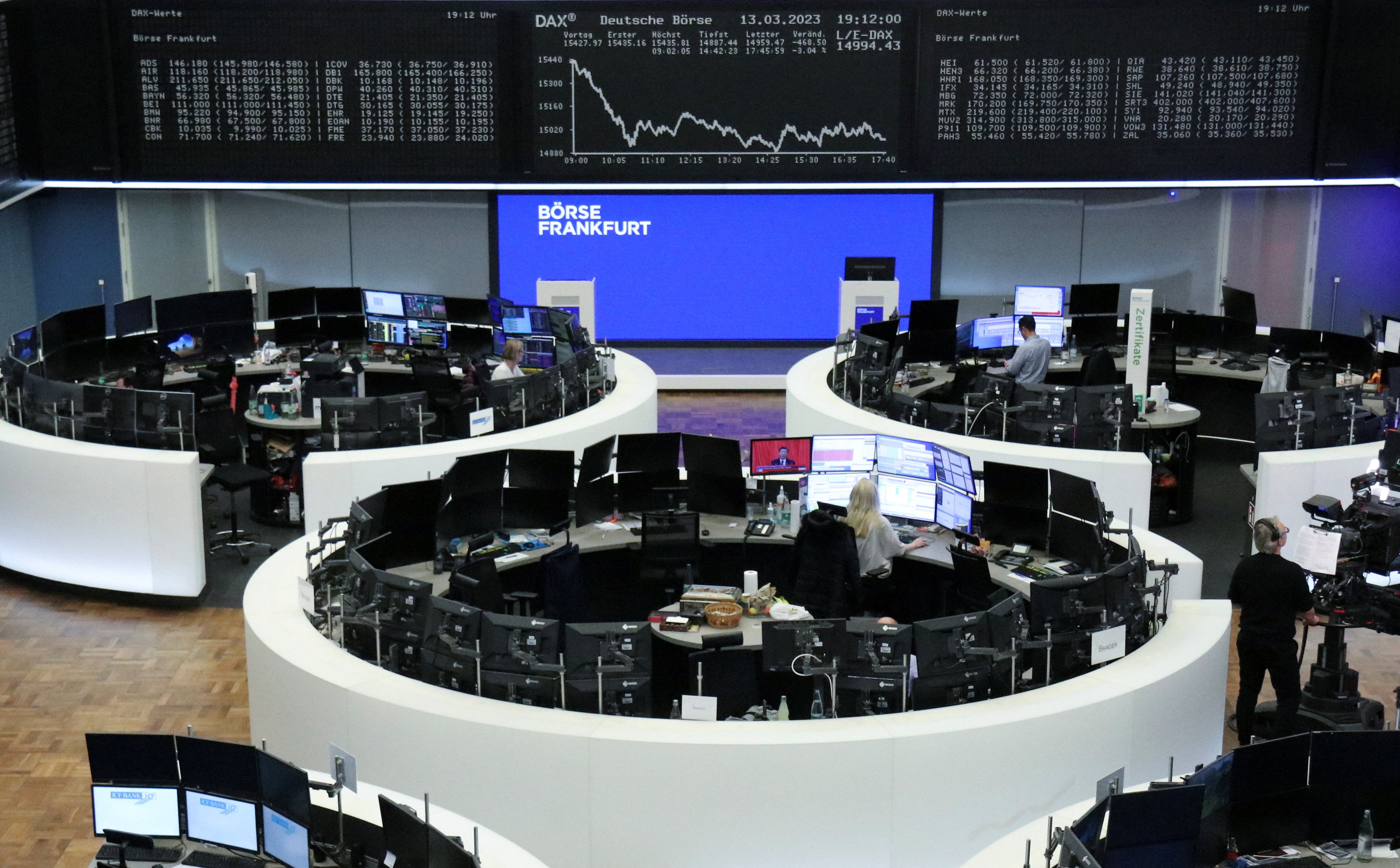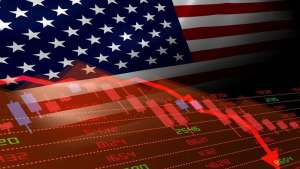Global shares fell for a sixth day on Tuesday as a brewing U.S. banking crisis prompted investors to downgrade their expectations for interest rate hikes, even ahead of key inflation data later in the day.
As recently as a week ago, investors were just recovering from a reality-check that prompted many to assume that rates around the world were likely to head much higher and stay there for longer than previously expected.
In under a week, three U.S. banks have collapsed. It has been the failure of technology-sector lender Silicon Valley Bank (SVB) that has rattled investor confidence and triggered a rush into safe-haven assets like bonds and gold.
Banking stocks around the world have shed hundreds of billions of dollars in value in a matter of days, while the government bond market has seen one of its biggest rallies in decades.
Short-dated U.S. Treasury yields rose 19 basis points to around 4.22%, but given that on Monday they posted their largest one-day drop since 1987, the rise on Tuesday still left yields at their lowest in six months.
Many have drawn parallels to the 2008 financial crisis, when indicators of financial market stress shot up and equities crumbled. But Societe Generale chief currency strategist Kit Juckes said the current situation was far more like the U.S. savings and loans crisis of the 1980s, in which hundreds of smaller banks folded when the Federal Reserve jacked up interest rates to control inflation.
SVB, which was the 16th biggest U.S. bank at the end of last year, is the largest lender to fail since 2008. Specifics of the tech-focused bank's abrupt collapse are still something of a jumble, but the sharp rise in Fed rates in the last year, which tightened financial conditions in the startup space in which it was a notable player, seemed front and centre.
"I don't think this is a systemic global banking issue. If it's an issue, it's an issue of a smaller but less-regulated bank that has been growing very fast on the back of being less regulated in a stable environment that has turned nasty," Juckes said.
"When I look at (the savings and loans crisis), we had a very mild recession, even though we were worried about it at the time. We had a very big interest rate reduction after a very big interest rate increase," he said. "(SVB) seems very unlikely to have very big systemic implications, particularly when U.S. authorities have come in so quickly to start tackling it."
Overnight the VIX (.VIX) volatility index, nicknamed Wall Street's "fear gauge", neared six-month highs and other indicators of market stress showed early signs of strain. An index of bond market volatility - the ICE BofA MOVE index (.MOVE) - had hit a 14-year high by Monday's close.









